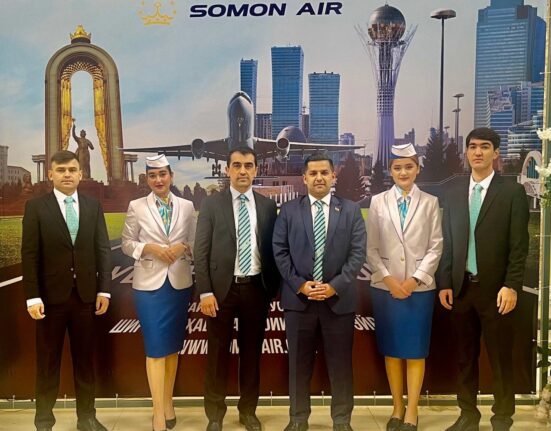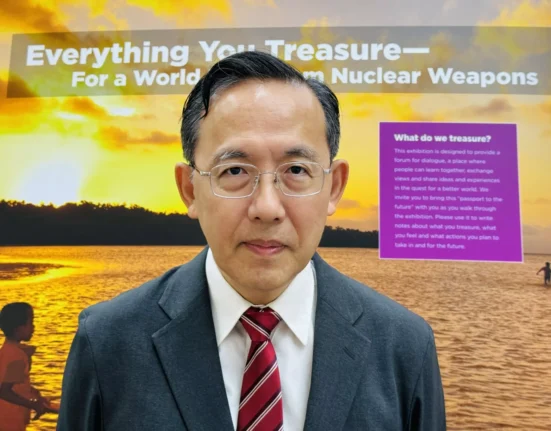In this exclusive interview, we have the honor of speaking with His Excellency Juan Angulo, the esteemed Ambassador of Chile to India. With a wealth of diplomatic experience and a deep understanding of the bilateral relationship between the two nations, Ambassador Angulo sheds light on the vibrant collaborations, cultural exchanges, and strategic initiatives that define the enduring friendship between Chile and India. Join us as we explore the multifaceted facets of this diplomatic alliance and gain insights into the shared vision for a prosperous and cooperative future.
What are some sectors Chile and India are currently collaborating in? What are some sectors Chile and India are looking at collaborating in the future?
Chile and India have diversified their cooperation beyond trade, forging agreements, for example, in agriculture focusing on climate change adaptation and drought combat. Discussions have expanded to renewable energies like green hydrogen, Antarctica research, astronomy, IT, pharma, social security, police collaboration, and e-commerce. Notably, their collaboration in agro-food is mutually beneficial due to seasonal differences; Chile’s quality products arrive in India off-season, avoiding competition. This strategic partnership enhances both nations’ offerings, promising benefits for consumers in diverse sectors.
What are some unique aspects of the culture of Chile which pique the interest of travelers from India?
Chile’s diverse landscapes, shielded by the Andes, Atacama Desert, and Pacific Ocean, allure global travelers. Its unique geography shapes a varied cultural tapestry, from the northern Atacama’s geysers and volcanoes to central zones with coastal cities like Valparaíso and vineyard-filled valleys like Colchagua. Further south, cities like Puerto Varas, the island of Chiloé, and Patagonia’s Torres del Paine National Park offer distinct influences, blending indigenous Mapuche heritage with waves of immigration. Chile’s cuisine, rooted in potatoes, corn, beans, and seafood, showcases this rich fusion. Additionally, Easter Island, with its iconic Moai statues, embodies Polynesian culture, highlighting a deep connection to the sea in its cuisine and traditions. Chile’s multifaceted offerings promise a vibrant and diverse travel experience.
Considering there’s immense natural beauty in Chile, what are some measures being taken by the government to ensure preservation of nature?
Chile safeguards its natural treasures by designating nearly 20% of its land as protected areas, including 42 national parks, 46 reserves, 4 marine parks, and 18 natural monuments. The National Office for Forests (CONAF) oversees these areas, ensuring their preservation. Chile actively promotes eco-friendly tourism, encouraging sustainability and involving local communities, particularly in ethnic tourism initiatives. Notably, 43% of the country’s maritime surface is protected, a significant conservation feat. Efforts continue to enhance this preservation, involving coastal communities reliant on marine resources. Chile’s commitment to preserving its environment through diverse protective measures underscores its dedication to sustainable practices and environmental conservation.
Are there any specific conservation efforts being taken in Chile which are noteworthy? For protecting wildlife and animal biodiversity?
Chile has been proactive in its efforts to protect wildlife and biodiversity. Additionally, of the mentioned protected areas, there are initiatives to protect biodiversity on private lands, indicating a collaborative approach between the government and private landowners. The efforts of Chile in protecting wildlife and animal biodiversity have been recognized by several international organizations working in this field, like the World Wildlife Fund (WWF).
Furthermore, Chile has developed a strategy and action plan in alignment with the Convention on Biological Diversity, emphasizing its national and international commitment to biodiversity conservation. The country’s approach to biodiversity conservation and sustainable use is also documented, highlighting its multifaceted strategies, such as conservation planning, sustainable resource management, research and education, among others.
What are some places in Chile you personally recommend Indian travelers to explore?
Both countries present a huge variety of climates and landscapes which, in the case of Chile, extends from the desert in the north to the Antarctic in the south, as well as to Easter Island.
The Atacama Desert, in the north of the country, could be an interesting place to visit for Indian travelers because is the driest desert in the world and has beautiful old towns and ruins preserved from ancient cultures, situated among a blend of colorful mountains, salares, geysers, sky observatories, and a rich fauna, like link flamingos and foxes.
Eastern Island could be another interesting place for Indian tourists, because of its isolation and the unique stone statues known as moais, only found in this part of the world.
How are India and Chile collaborating in Antarctica?
Chile, as you may be aware, has the nearest point of access to Antarctica. Due to that privileged position, it is the natural gateway to the continent. Not only this is an opportunity for sustainable tourism in that continent, but also to become a hub for scientists and researchers on Antarctic matters that will gather in the International Antarctic Center to be established in Punta Arenas.
For that reason, we have had conversations with India to collaborate in research and transfer of knowledge between the respective Polar and Antarctic Institutes, to share research projects and to allow the use of the respective bases to do research in joint programs.
Of course, it is going to take some time, but we continue to explore ways in order to go further in strengthening the ties in the Antarctic sector to benefit scientists from India and Chile.
India and Chile share common concerns over cross border terrorism. What are some measures undertaken by the government to curb terrorism in Chile?
Chile has a strong position against terrorism and has been actively participating in all the multilateral fora to contribute to the efforts in that sense and to reflect Chile’s commitment to combating terrorism on all its forms on the global stage.
That commitment has its grounds in national legislation, too. Under the national constitution, which recognizes that terrorism, in any of its forms, is inherently contrary to human rights, In that regard, the national legal system establishes very strong punishments against those who commit terrorism or give aid to it, such as strong prison sentences and pardon prohibitions.
What are some points over which youth in India and Chile can connect? What are some ways in which the youth of both countries can collaborate from a distance to solve key issues?
The difference between past times and the current ones is that there are no limits to people’s connections, especially among the youth, who have been raised among modern technologies, destroying any distance that the physical frontiers might create.
Taking that into account, we should think about points that may change in attention to the issues that each moment presents. For now, one of the key issues could be improving the knowledge transfer between countries in areas such as medicine, IT, and pharma.
The pandemia has taught the world that global issues must be solved among all humanity, no matter the country of origin. Since new pandemias, or global issues, could come, we must be prepared, which means that we have to put in effort in order to improve the networks between the youth and their education in case the world needs them to work together no matter the distance.
Anything else you would like to share with us.
Chile and India have had a very strong friendship since the day of the independence of India. On that memorable occasion Chile sent a special envoy to attend the ceremonies in Delhi as an expression of the special ties between the countries and to witness the event of that especial day in Indian history.
That friendship is grounded in shared values and similar approaches in many fields of the international agenda. No matter the physical distance, we have been able to work together on different topics and also share some experiences. Both countries, for example, have mutually supported their respective candidacies for the Security Council and Chile supports the aspiration of India to became a permanent member of that council.
In the agricultural sector, due to the counter-season reality, Chile can put in Indian tables some products when the current Indian season makes it impossible to produce those products locally. In that manner, we don’t harm the Indian production but on the contrary, support the requirements of Indian families.
We expect to go further in new areas of cooperation with India and to continue on the path of giving prosperity to both peoples.







